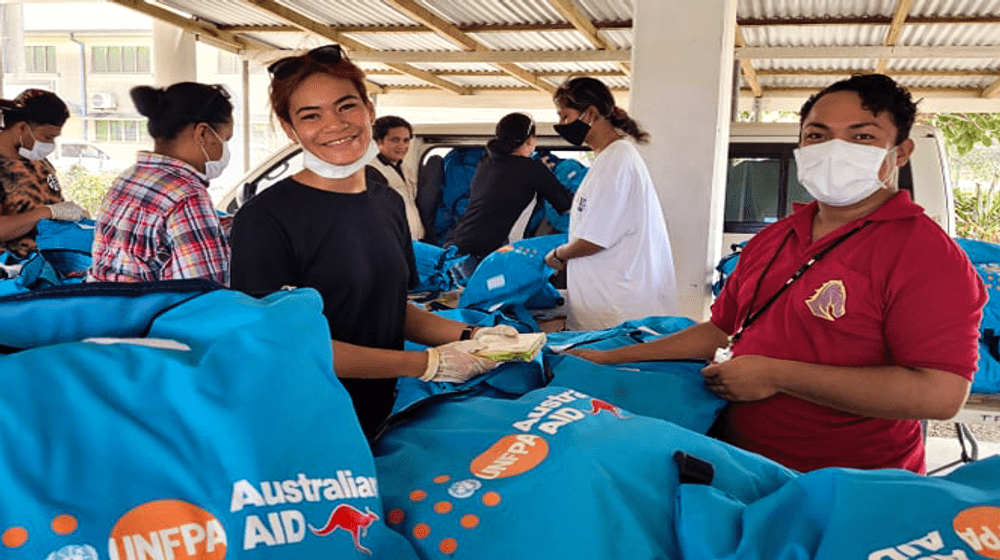UNFPA Pacific is on the ground providing assistance in Tonga, distributing hygiene supplies and providing other critical support in affected areas – including prioritizing women’s reproductive health needs.
This is after the devastating undersea eruption of the Hunga-Tonga-Hunga-Ha’apai volcano in Tonga. It is estimated that around 84% of the population, over 84,000, people have been affected around the main island of Tongatapu and the island groups of Ha’apai, ‘Eua and Vava’u.
UNFPA Pacific is working with partners, such as Tonga Family Health Association whose volunteers helped to deliver 252 dignity kits to Kanokupolu village on the main island of Tongatapu.
These dignity kits contain basic health and hygiene products such as soap, sanitary napkins and underwear – critical items for women and girls that can be easily overlooked in a disaster response.
UNFPA Pacific Director and Representative Dr Jennifer Butler said that “as soon as the ash was settled and before the runways were cleared, UNFPA Pacific was there supporting the Ministry of Health and Tonga Family Health Association to quickly deliver dignity kits to the village of Kanokupolu. The needs of women and girls must be at the forefront of our minds as we respond on the ground”.
With the support from the Government of Australia, HMAS Adelaide will be arriving with over 1,500 more dignity kits and clean delivery supplies for pregnant women.
UNFPA Pacific partners with governments and others to strengthen health systems, train health workers, educate midwives and improve access to the full range of reproductive health.


